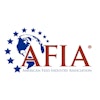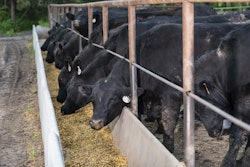
Small Refinery Waivers Rejected By US Court
A US appeals court ruled that the Environmental Protection Agency (EPA) must reconsider three biofuel waivers it granted to small oil refineries, arguing the agency's justification for approving the exemptions was flawed.
2016 exemptions apply to Holly Frontier's Woods Cross and Cheyenne refineries, and CVR Energy's Wynnewood refinery.
Under the U.S. Renewable Fuel Standard (RFS), the nation's oil refineries are required to blend biofuels such as ethanol into gasoline or buy production credits known as RINs to help offset lost production.
The EPA can waive their obligations if they prove compliance would cause them financial distress.
According to the court's decision, the EPA overstepped its authority to grant the waivers because the refineries had not received exemptions in the previous year.
FBN’s Take On What It Means: We believe that the decision to overturn the EPA’s decision to extend three oil refineries a production waiver is a small victory for the US farmer. The small refiner waiver (SRW) process has the ability to be a negative for the US farmer as it provides little insight to the timing of when downstream oil refiners may reduce their gasoline production. Reduced gasoline production can translate to reduced demand for ethanol which has proven to be a negative for corn basis.
Argentine soy crusher Vicentin in takeover talks
Argentina's top exporter of soybean meal and oil, Vicentin, is in talks over a potential takeover deal to help resolve a debt crisis.
Argentina is the global top exporter of soy meal and soy oil.
Vicentin defaulted on payments to suppliers late last year and also owes money to farmers.
Argentina relies heavily on its agricultural sector - especially processed soy - for export dollars to service its foreign debts with creditors.
In December 2019, newly elected Argentina President Alberto Fernandez raised export taxes on the country’s agricultural commodities.
FBN’s Take On What It Means: We believe that the financial vulnerability of Argentina’s largest soybean crusher has the ability to be a positive for the U.S. soybean meal demand. If Argentine crush slows and exports fall we believe that some of the lost export volume could shift to the U.S. which could be a positive for U.S. soybean demand and soybean prices.
The risk of trading futures, hedging, and speculating can be substantial. FBN BR LLC (NFA ID: 0508695)









